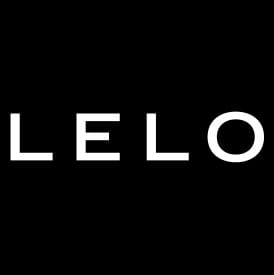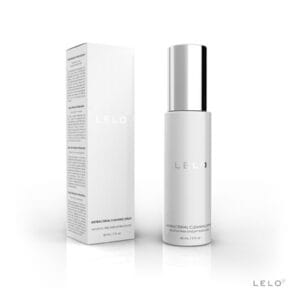Choosing Safe Sex Toys
Understanding the materials used in sex toys will help you choose the right toy. Before I outline the different materials used in the manufacture of sex toys, a quick note on the use phthalates and porous versus non-porous materials.
Phthalates (pronounced THAL-ates) are a group of compounds which are added to plastics to make them flexible and soft and can be often found in cheaper products. In Australia, certain phthalates have been banned, especially in the manufacture of children’s toys (See Consumer Safety Australia). The European Union has also placed bans on certain phthalates. There is some evidence that certain phthalates are toxic to humans. Exposure to phthalates in adult toys is also a concern. As the product ages (from use and cleaning) the layers containing the phthalates are exposed. Have you ever used an adult toy vaginally or anally and experienced a burning sensation – then this was most probably caused by the phthalates. If you using a sex toy with phthalates it is best to do so with a condom to give you some level of protection.
Adult toys at Aphrodite’s Pleasure phthalate-free and body safe.
Porous vs. Non-Porous – A non-porous adult toy is safer. A porous toy means bacteria can be absorbed or “hide” in the material and makes for cleaning afterwards much harder. A non-porous adult toy can be easily and safely cleaned. If cleaned properly bacteria will be kept to a minimum. With each material type outlined below we also discuss how to care for the product. Many of the adult toys sold at Aphrodite’s Pleasure come with care instructions from the manufacturer – it is important to follow these instructions to ensure you get the most from your adult toy.
Soft plastic (PVC) and jelly-based toys are often cheaper. Jelly and soft plastic toys are also soft to use and highly pliable. These materials are also very porous and therefore are more difficult to disinfect. They will often contain phthalates (to make soft and pliable). Some jelly toys will also contain latex. If you have a latex allergy stay clear of jelly toys. To clean jelly and soft plastic toys use soap and warm water, dry the toy carefully and store in a dry cool place. Also avoid toys “touching each other so they do not “stain” or “melt” each other. If using a jelly or a soft plastic toy, always use a condom and especially if you are sharing the toy with someone else. Only use water=based lubricants with these toys.
Latex toys are a step up from soft plastic toys. Latex toys, like soft plastic and jelly toys, are at the cheap end of the market. Latex toys more often than not contain phthalates. Latex is also highly porous which means these toys are difficult to clean properly. If you have a latex allergy do not use latex based toys. When playing with a latex toy use a condom and a water-based lubricant. Never use an oil based lubricant with a latex toy. To clean a latex toy use soap and warm water, dry and store in a cool, dry place.
Elastomer is phthalate-free and latex-free. Elastomer toys are hypoallergenic and free of chemical solvents and therefore great for people with allergies to certain chemicals and latex. Elastomer toys are soft yet still slightly porous, which means bacteria may still be present after cleaning. To clean elastomer toys use soap and warm water, dry and store in a cool, dry place. Use water-based lubricants with elastomer toys.
Skin-like products produced under trademarks like CyberSkin, Ultraskin, Eroskin, Softskin, Futurotic are made from thermoplastic rubber (see below) or a combination elastomers. Some skin-like products are phthalate free (e.g., Cyberskin) others may not be (e.g., Futurotic). Cyberskin is made from FDA (US) approved products and does not contain phthalates, PVC (plastics), or latex. Skin-like products are porous and therefore can hold bacteria after cleaning. To clean use a mild anti-bacterial soap and warm water. Pat dry then air dry. To keep your skin toy fresh store in an airtight container and coat with cornflour (cornstarch). Use only water-based lubricants and avoid, silicone, oil or petroleum based lubricants as these will destroy the product.
Thermoplastic Rubber (TPR) or Thermoplastic Elastomer (TPE) – is polymer blend which non-toxic, phthalate-free, and hypoallergenic. Thermoplastics are slightly porous; more so than silicone, but less so than skin-like (e.g., Cyberskin TM) products, and can still hold bacteria after cleaning. To clean TPR/TPR products use a mild soap and warm water, or an anti-bacterial toy cleaner (we recommend Lelo Anti-Bacterial). Use a condom if sharing the toy and only use a water-based lubricant.
Hard Plastic toys are made from materials like ABS, polycarbonate and PVC (non-plasticised PVC). Many hard plastic toys are phthalate-free, hypoallergenic and non-porous. This means they are easy clean and will not contain as much bacteria as porous toys. Use soap and warm water and dry thoroughly. Hard plastic toys are often cheaper and contain stronger vibrations. Hard plastic toys, because of their hardness/rigidity may not be suitable for toys for penetration.
Silicone (medical grade or 100%) toys can be soft and life-like. Silicone toys warm to body’s temperature quickly which can add more fun. Medical grade or 100% silicon is a synthetic material which is non-porous making it one of the most hygienic toy materials on the market. It is also phthalate-free and completely hypoallergenic. As it is non-porous silicone toys can be shared after cleaning. To clean silicone toys you can use an antibacterial toy cleaning products (we recommend Lelo Anti-Bacterial ) or a mild soap and hot water. Also make the toy and its controls are waterproof). Silicone can be sterilised in temperatures up to 100 Celsius, but check the manufacturers recommendations before subjecting to too much heat. It is recommended to use water-based lubricants and many toy manufacturers suggest not using silicone-based lubricants with silicone toys.
Glass (hard glass or borosilicate glass) toys are made from clear medical grade borosilicate or hard glass. Think Pyrex. This form of glass is lead-free, non-porous and hypoallergenic. These types of toys have strong structural integrity and can withstand extreme pressure (around 1,000 kg), heat and cold. As they are non-porous you can clean them using an antibacterial toy cleaner (we recommend Lelo Anti-Bacterial), bleach solution, soap and warm water, or boil them. You can use any type of lubricant with hard glass toys.
Steel-based toys are made from chrome alloys and stainless steel. These toys arenon-porous and will easily warm to the body. Quality steel toys, like glass toys, can be beautiful works of art. If looked after properly steel based toys will last forever – you could make them a family heirloom! Steel based toys can be cleaned in the same ways as glass-based and silicone-based toys. You can use antibacterial toy cleaners (we recommend Lelo Anti-Bacterial), soap and water or boil carefully for a short time. You can use any type of lubricant whether water, silicone, or oil based.
Next time you purchase an adult product consider the material from which it is made. Adult toys at Aphrodite’s Pleasure are body-safe and phthalate-free.
Remember good is a sane, sensual, and safe, and a healthy life includes a healthy sex life!
Enjoy!
Dr Christopher
Dr Christopher Fox is a Psychosexual and Relationship Therapist at Sex Life Therapy in Melbourne. He has clinics in East Melbourne and Frankston.
Disclaimer: The information contained in this document should be read as general in nature and is only to provide an overview of the subject matter covered. Please read product packaging carefully and follow all instructions.



